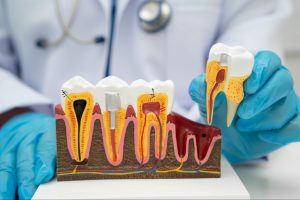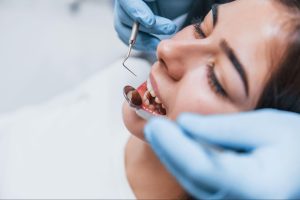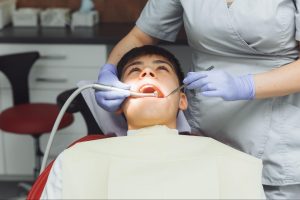Neglecting proper teeth cleaning habits can quickly lead to serious dental issues, affecting oral health and overall well-being. When brushing and flossing are skipped or done incorrectly, plaque and bacteria accumulate on the teeth and gums, setting the stage for cavities, gum disease, and bad breath. Over time, these problems can escalate, leading to tooth decay, gum infections, and even tooth loss. However, regular and effective teeth cleaning can help prevent these issues and promote a healthier mouth. Maintaining good oral hygiene ensures long-term dental health and reduces the risk of severe complications.
Understanding the Basics of Teeth Cleaning
Maintaining a consistent and thorough teeth cleaning routine ensures long-term oral health. Brushing and flossing are the fundamental practices that remove plaque, bacteria, and food particles from the mouth. Without these essential habits, harmful substances can accumulate, leading to cavities, gum disease, and other dental problems.
Proper Techniques for Brushing and Flossing
Using the correct brushing and flossing techniques ensures that every surface of your teeth and gums is properly cleaned, minimizing the risk of oral issues. Brushing correctly allows you to remove the bacteria and plaque that naturally accumulate on your teeth. Flossing is essential for cleaning between teeth where a toothbrush can’t reach, helping prevent tooth decay and gum disease.
Brushing
Brushing your teeth properly is essential for maintaining a clean mouth. First, use a soft-bristled toothbrush, as stiff bristles can cause gum damage over time. Brush for at least two minutes, ensuring you cover all surfaces of each tooth, including the front, back, and chewing surfaces.
Flossing
Flossing is as important as brushing, as it helps remove food particles and plaque between the teeth. Gently slide the floss between your teeth, curved around each tooth to clean the sides. Avoid snapping the floss, as this can damage your gums. Be sure to floss once a day to keep your gums and teeth healthy.
Recommended Frequency of Brushing and Flossing
The frequency of brushing and flossing is as important as the techniques used. Brushing twice daily and flossing once daily ensures that your mouth is free from plaque buildup, bacteria, and food particles. Neglecting this daily routine can lead to gum disease, cavities, and bad breath.
Brushing Frequency
Brush your teeth at least twice daily: once in the morning and once before bed. Brushing in the morning helps remove plaque that has built up overnight while brushing at night eliminates food particles and bacteria that have accumulated throughout the day. If possible, brushing after every meal is even better, especially if you consume sugary or acidic foods.
Flossing Frequency
Flossing should be done at least once daily to remove plaque and food debris between your teeth. It’s best to floss before brushing to remove particles and then brush away the remaining debris. Flossing at night is ideal, preventing bacteria from growing while you sleep.
The Consequences of Poor Teeth Cleaning on Oral Health
Neglecting proper teeth cleaning habits can lead to serious oral health problems. Failing to brush and floss regularly allows plaque and bacteria to build up, leading to dental issues. If left untreated, these problems cannot only affect your teeth but also impact your overall health:
Cavities and Tooth Decay
When plaque accumulates on teeth, it eventually hardens into tartar, leading to cavities. The bacteria in plaque produce acids that erode tooth enamel. Over time, this damage can result in tooth decay and, if untreated, the need for fillings or tooth extraction. Regular brushing and flossing can help prevent this buildup and keep cavities at bay.
Gum Disease
Poor teeth cleaning habits allow plaque to build up along the gum line, leading to inflammation and infection. Gingivitis, the earliest stage of gum disease, can cause red, swollen gums that may bleed when brushing. If left untreated, it can progress into more severe periodontitis, leading to gum recession and tooth loss. Brushing and flossing regularly are key to maintaining healthy gums and preventing periodontal disease.
Bad Breath
Failure to properly clean your teeth allows food particles and bacteria to linger in the mouth, resulting in bad breath. This condition, known as halitosis, is often caused by the buildup of plaque and bacteria on the teeth and tongue. The bacteria that produce foul-smelling compounds thrive in an unclean mouth. Brushing and flossing regularly help keep bad breath under control and maintain fresh breath.
Staining and Discoloration
Not cleaning your teeth properly can lead to staining caused by plaque buildup and the consumption of staining foods like coffee, tea, or tobacco. The lack of proper cleaning allows these substances to cling to your teeth and discolor them over time. Regular brushing helps remove these stains and keep teeth looking white. Flossing can also help by removing debris between the teeth that may contribute to staining.
Long-Term Impact of Poor Teeth Cleaning Habits
Neglecting proper teeth cleaning habits over time can lead to severe and irreversible oral health problems. Plaque and tartar buildup and unchecked gum disease can damage your teeth and gums long-term. These issues can extend beyond cosmetic concerns and impact your overall health, requiring costly dental interventions:
Tooth Loss
Long-term neglect of oral hygiene can lead to severe tooth decay and gum disease, ultimately resulting in tooth loss. As plaque and tartar accumulate, they break down the structures that support your teeth. The infection spreads, weakening the bone and soft tissue that holds teeth in place. Eventually, teeth may loosen and fall out or require extraction due to decay. Regular brushing and flossing can prevent the gradual breakdown of these structures and help preserve your teeth for life.
Serious Risks of Gum Infection
Chronic gum disease develops when early-stage gingivitis is not treated, leading to ongoing inflammation and infection. If ignored, this can progress to periodontitis, a severe form of gum disease that causes tooth mobility and loss of bone. The bacteria involved in gum disease can enter the bloodstream, leading to systemic health issues, including cardiovascular disease and diabetes complications. Treating gum disease early through consistent oral care can prevent it from progressing to these harmful stages. Skipping proper care can put your overall health at risk, extending beyond your mouth.
Tooth Sensitivity
When teeth aren’t cleaned properly, plaque buildup weakens tooth enamel, causing it to erode over time. This results in heightened tooth sensitivity, where even mild stimuli, such as hot or cold food, can cause discomfort. Over time, the exposed dentin becomes more vulnerable to further damage. This sensitivity can make everyday eating and drinking uncomfortable. Proper cleaning habits help protect enamel, maintaining the health and function of your teeth.
Increased Risk of Oral Infections
Neglecting proper teeth cleaning can lead to bacterial growth, which increases the likelihood of developing oral infections. These infections can cause pain, swelling, and abscesses that require medical attention. Without regular cleaning, the bacteria that thrive in your mouth can spread, potentially causing more severe health issues. Oral infections can also lead to the need for root canals or tooth extractions. Consistent oral care prevents the buildup of bacteria and minimizes the risk of infections.
Long-Term Cosmetic Damage
Years of poor teeth cleaning can lead to significant cosmetic issues, including yellowing, staining, and visible plaque buildup. Stains from foods, beverages, and tobacco can become deeply embedded, making them harder to remove with regular brushing alone. The longer these stains sit on your teeth, the more difficult they become to treat, often requiring professional cleaning or whitening treatments. Additionally, the damage caused by poor oral care can negatively affect the appearance of your smile. Maintaining a good brushing and flossing routine helps keep teeth bright and healthy in the long term.
How Teeth Cleaning and Dental Visits Boost Oral Health
Regular teeth cleaning and dental visits are crucial for maintaining a healthy mouth and preventing serious issues. Brushing and flossing at home remove plaque and bacteria that can cause oral health problems, while professional dental cleanings help eliminate tartar buildup. Consistent dental visits also enable early detection of problems, leading to more effective and less invasive treatments.
Prevents Tooth Decay
When you clean your teeth properly, plaque is removed, preventing the accumulation of bacteria that cause cavities. If left untreated, plaque hardens into tartar, which can only be removed during a dental cleaning. Tooth decay often begins as small cavities that are easily treatable when caught early. Still, these cavities can grow without regular cleaning and dental visits, leading to more invasive treatments like fillings or root canals. Regular cleanings and dental visits ensure that decay is identified early, preventing it from escalating into major dental issues.
Keeps Your Gums Healthy and Strong
Teeth cleaning is essential for removing plaque buildup at the gum line, where bacteria can cause irritation and inflammation. When plaque isn’t removed, it causes the gums to swell and bleed, leading to gingivitis, the early stage of gum disease. Left untreated, gingivitis can progress to periodontitis, which causes tooth loss and damage to the underlying bone structure. Regular dental visits allow your dentist to monitor the health of your gums and catch signs of gum disease before they progress to more severe stages.
Detects Early Signs of Oral Health Problems
Dental visits allow for professional exams, where dentists look for early signs of issues such as cavities, cracked teeth, or oral cancer. Many oral health problems don’t show symptoms until they are more severe, and these issues can be hard to spot without professional tools. Dentists use X-rays and other methods to check for problems below the surface, such as cavities between teeth or bone loss from gum disease. Early detection means less invasive treatments, saving time and money and preventing complications.
Improves Overall Health
Regular teeth cleaning and dental visits help reduce the risk of developing systemic health issues linked to poor oral hygiene, like heart disease and diabetes. Bacteria from untreated gum disease can enter the bloodstream and affect other areas of the body, including the heart, increasing the risk of cardiovascular disease. Oral infections have been linked to other health conditions, including stroke and respiratory problems. By maintaining good oral hygiene and attending regular dental visits, you not only protect your teeth and gums but also reduce the risk of these serious health problems.
Build Better Oral Health With Daily Teeth Cleaning
Consistent, basic teeth cleaning practices are essential for maintaining healthy teeth and gums. Brushing twice daily and regularly flossing removes harmful bacteria and plaque contributing to tooth decay and gum disease. These simple steps can prevent costly dental procedures and brighten your smile for years. Incorporating these habits into your daily routine sets the foundation for a lifetime of good oral health.
For tips on better teeth cleaning, visit the Meader Family Dentistry blog.






